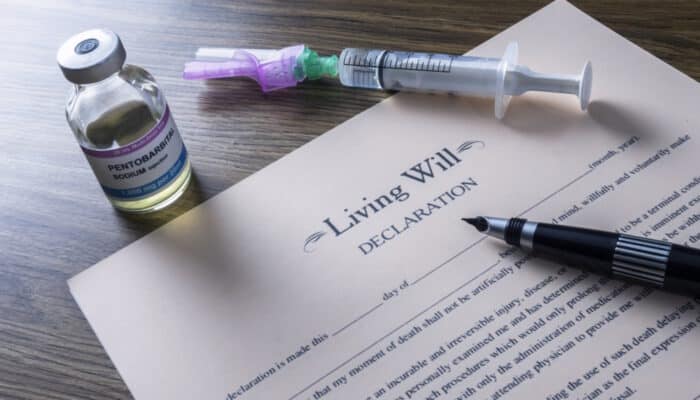[Save Lives with a Simple Step in Your Estate Plan]
Every day, thousands of people in Florida and across the country wait for a life-saving organ transplant. A Florida resident can make a profound difference by registering as an organ donor. As part of the estate planning, organ donation is a powerful way to leave a lasting legacy of compassion and healing.
The following is what Florida residents need to know about becoming an organ donor and how to make sure their wishes are honored.
4 Simple Steps to Becoming an Organ Donor in Florida
1. Register with the Florida Organ Donor Registry
The easiest and most effective way to document your choice is to register with the state’s official donor registry at Donate Life Florida. Registration is quick and can be done online in just a few minutes. Once you are listed, medical personnel can easily confirm your wishes at the time of death.
Did you know? Florida is home to thousands of people on the transplant waiting list. One donor can save up to eight (8) lives and enhance dozens more through tissue donation.
2. Use Your Florida Driver’s License
When you apply for or renew your driver’s license or state ID at the Florida Department of Highway Safety and Motor Vehicles (DHSMV), you will be asked if you would like to become an organ donor. If you say yes, the words “ORGAN DONOR” will appear on the front of your license.
Even better, your registration will automatically be shared with the state donor registry, so you do not need to sign up separately.
Tip: See the Florida Driver Handbook for more details.
3. Include Your Wishes in Your Healthcare Surrogate Designation
In Florida, your Designation of Healthcare Surrogate (also known as a healthcare power of attorney) allows you to name someone to make medical decisions if you cannot speak for yourself.
You can and probably should include your desire to be an organ donor in this legal document. While your Last Will is important, it is usually read after the time-sensitive window for donation has passed. That is why it is better to include your wishes in your healthcare documents and keep them easily accessible.
4. Tell Your Family and Healthcare Providers
Even though your documented consent must be honored by law (Florida Statutes §765.512(1)(b)), discussing your decision with loved ones is just as important. This ensures they understand and support your choice, helping avoid confusion or delays.
Make sure to share your decision with:
- Immediate family members
- Your health care surrogate and providers
- Your attorney and estate planner
- Your clergyperson (if applicable)
Why it matters: If your wishes are not documented, Florida law allows certain family members to make the decision for you. Avoid any uncertainty by making your intent clear.
Donating Your Whole Body to Science in Florida
If you wish to donate your entire body for scientific or educational purposes, you will need to arrange this in advance with a medical school or accredited organization.
A few options include:
- University of Florida Anatomical Board
- Science Care, a national whole-body donation organization
- Other programs listed through national registries of body donation centers.
Be sure to:
- Complete the required consent forms directly with the program
- Inform your family and healthcare providers of your decision.
If You Do Not Wish to Be an Organ Donor in Florida
Just as important as choosing to donate is the right to decline. If you do not wish to donate your organs or tissues, you must:
- Put your decision in writing, such as in your Designation of Healthcare Surrogate or a stand-alone document
- Sign and date the statement
- Notify your family and medical providers of your choice.
Under Florida law, if your refusal is known and documented, no one else can authorize organ donation on your behalf. (Florida Statutes §§ 765.512(3)-(4)).
Who Decides If You Have Not?
If you have not made your organ donation wishes known before death, Florida law gives that authority to others, in the following order:
- Your healthcare surrogate (unless explicitly limited)
- Your spouse
- An adult child
- Either parent
- An adult sibling
- An adult grandchild
- A grandparent
- A close personal friend (as defined by law)
- Your legal guardian or someone appointed by a court.
(Florida Statutes § 765.512(2)-(3))
Take Control: If you want someone specific to make this decision, or if you want to prevent someone from doing so, put it in writing now.
Learn More About Organ Donation
Visit OrganDonor.gov to learn more about organ and tissue donation, how the process works, and the impact your decision can have.
The foregoing is a brief and general overview of the topic and the need for specific and experienced legal and tax advice is emphasized.
Need Help with Healthcare Directives or Estate Planning in Florida?
At CASERTA & SPIRITI in Miami Lakes, our attorneys help clients across South Florida create estate plans that reflect their wishes clearly, compassionately, and legally. Whether you are updating your Designation of Healthcare Surrogate or drafting a Living Will (Advance Directive), we are here to guide you every step of the way.
Call today to schedule a consultation and take control of your legacy.










